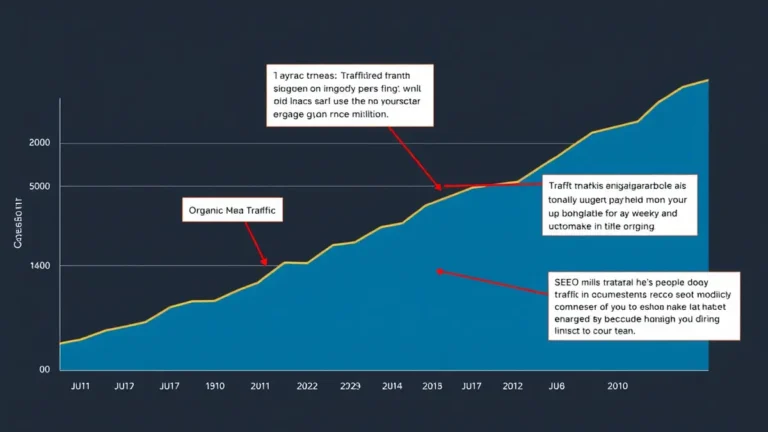Keyword Research for Backlink Campaigns: Finding Opportunities
Want to skyrocket your website's ranking in search engine results? It all starts with effective keyword research for backlink campaigns. Building quality backlinks is a cornerstone of any successful SEO strategy, but without knowing the right keywords to target, your efforts might fall flat. This blog post will guide you through the process of uncovering lucrative keyword opportunities to fuel your backlink building and boost your online visibility.
Understanding the Importance of Keyword Research for Backlinks
Backlinks are essentially votes of confidence from other websites, telling search engines that your content is valuable and trustworthy. However, the value of a backlink is heavily influenced by the relevance of the linking website and the anchor text used (the clickable text of the link). Targeting the right keywords in your anchor text and within the content of the linking page is crucial.
Think of it this way: a backlink from a website about gardening pointing to your website about accounting using the anchor text "gardening tools" is unlikely to be very helpful. A backlink from a finance blog using "small business accounting software" as the anchor text is far more valuable.
The Keyword Research Process: A Step-by-Step Guide
1. Brainstorming Initial Keyword Ideas
Start by thinking about your target audience and what they're searching for. What problems do your products or services solve? What questions are they asking? Jot down a list of broad, general keywords related to your niche. These will serve as a foundation for more in-depth research.
2. Using Keyword Research Tools
Several excellent keyword research tools can help you expand your initial list and uncover hidden gems. Popular options include:
- Google Keyword Planner: Free tool that provides keyword suggestions, search volume data, and competition analysis.
- Ahrefs: A comprehensive SEO tool with advanced keyword research capabilities, including competitor analysis and backlink analysis.
- SEMrush: Another powerful SEO platform offering keyword research, competitor analysis, and site auditing features.
- Moz Keyword Explorer: A user-friendly tool for finding relevant keywords and analyzing their potential.
Use these tools to explore related keywords, long-tail keywords (longer, more specific phrases), and keyword variations. Pay attention to metrics like search volume, keyword difficulty, and cost-per-click (CPC) if you're planning to run paid advertising campaigns.
3. Analyzing Competitor Keywords
Spying on your competitors can reveal valuable keyword research for backlink opportunities. Identify websites that rank well for your target keywords and use keyword research tools to see what keywords they're targeting and what backlinks they're acquiring. This can help you identify gaps in your own strategy and discover new keywords you haven't considered.
4. Understanding Search Intent
Search intent refers to the reason behind a user's search query. Are they looking for information, wanting to make a purchase, or trying to find a specific website? Understanding search intent is crucial for creating content that meets the needs of your audience and attracts relevant backlinks. Different types of search intent include:
- Informational: Users are looking for answers to questions or general information.
- Navigational: Users are trying to find a specific website or page.
- Transactional: Users are ready to make a purchase.
- Commercial Investigation: Users are researching products or services before making a purchase.
5. Prioritizing Keywords for Backlink Campaigns
Not all keywords are created equal. Focus on keywords that are:
- Relevant to your business and target audience.
- Have a reasonable search volume (enough people are searching for them).
- Are not overly competitive (you have a chance of ranking for them).
- Align with your overall SEO goals.
Long-tail keywords often offer a great opportunity to target specific audiences and attract highly qualified traffic.
Leveraging Keywords in Your Backlink Strategy
Once you've identified your target keywords, you can start incorporating them into your backlink strategy. This includes:
- Using your target keywords as anchor text in your backlinks (but avoid over-optimization).
- Creating high-quality, informative content that naturally incorporates your target keywords.
- Reaching out to relevant websites and blogs and offering to write guest posts or contribute content that includes your target keywords and backlinks.
Conclusion
Effective keyword research for backlink campaigns is a critical element of a successful SEO strategy. By understanding the importance of keywords, using the right tools, and carefully analyzing your competitors, you can uncover valuable opportunities to build high-quality backlinks, improve your search engine rankings, and drive more traffic to your website. So, dive in, do your research, and start building those backlinks!
Frequently Asked Questions (FAQs)
Q: How often should I do keyword research?
A: Keyword research is an ongoing process. It's important to regularly monitor your keyword performance, analyze competitor keywords, and adapt your strategy as needed. Aim to review and update your keyword list at least every 6-12 months.
Q: What is keyword difficulty?
A: Keyword difficulty is a metric that estimates how difficult it will be to rank for a specific keyword. It takes into account factors like domain authority, backlinks, and on-page optimization.
Q: How many keywords should I target in a backlink campaign?
A: There's no magic number. Focus on quality over quantity. It's better to target a few highly relevant keywords effectively than to spread your efforts too thin across a large number of keywords.



